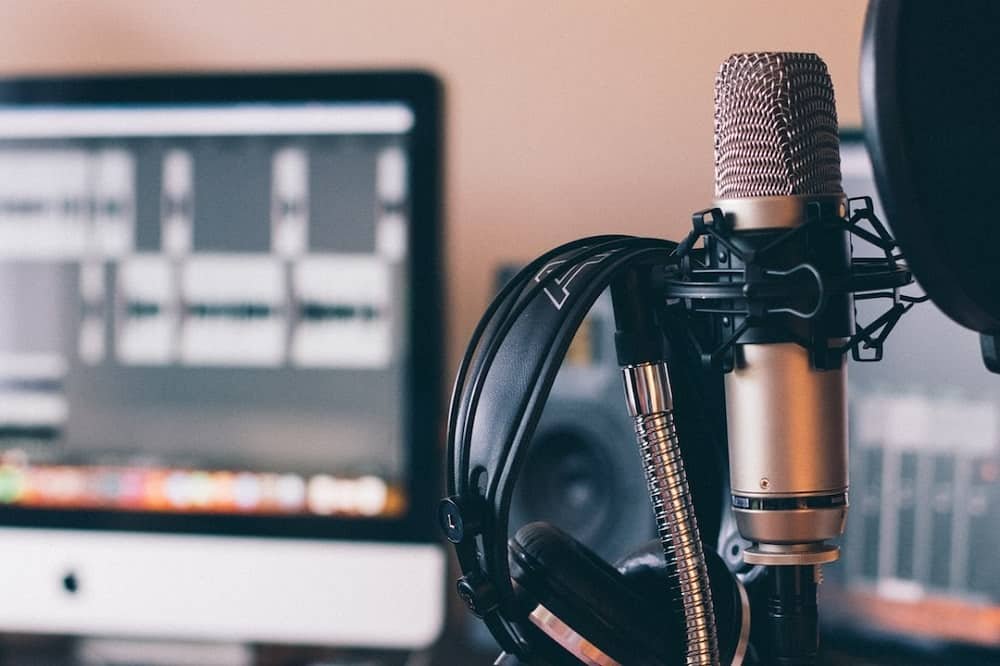Have you ever felt overwhelmed by the production work involved in podcasting? From planning episodes to editing audio, the process can be time-consuming and stressful. However, with a few simple tips, you can streamline your workflow and make your podcasting experience smoother.
In this post, we’ll share 11 effective strategies to enhance your podcast production work. By the end, you’ll have practical tools and techniques to improve your efficiency and enjoy the process even more. Read on!
1. Define Your Podcast Workflow
Defining your podcast workflow is the first step toward a smoother production process. By establishing a clear and organized approach, you can streamline each phase of podcasting, making it easier to focus on creating great content.
Create a Clear Process
Start by defining your podcast workflow. Outline each step, from content planning to final editing. This clarity helps you stay organized and focused. Knowing what to do next will reduce confusion and save time.
Use Project Management Tools
Consider using project management tools like Trello or Asana. These tools can help you track tasks and deadlines. You can assign roles if you work with a team, making collaboration easier.
2. Plan Your Content Ahead
Planning your content ahead is crucial for a successful podcast. By developing a content calendar and researching topics in advance, you can create engaging episodes while reducing stress and last-minute scrambling.
Develop a Content Calendar
A content calendar is essential for efficient podcast production work. Plan your topics and guest appearances at least a month in advance. This allows you to prepare better and reduces last-minute stress.
Research Your Topics
Take time to research your chosen topics thoroughly. This will help you create engaging content and ask insightful questions if you have guests. Well-prepared episodes lead to better discussions and higher quality.
3. Optimize Your Recording Setup
Optimizing your recording setup is essential for achieving high audio quality in your podcast. A well-planned environment and quality equipment can make a significant difference in your sound, enhancing the overall listening experience.
Choose the Right Environment
Your recording setup is crucial for great audio quality. Choose a quiet space with minimal background noise. Use soft furnishings like curtains and carpets to reduce echoes.
Invest in Good Equipment
Investing in quality microphones and headphones can significantly improve your sound. Good equipment helps you capture clearer audio, making editing easier and enhancing the listener experience.
4. Streamline Recording Sessions
Streamlining your recording sessions can help you stay focused and efficient. By establishing a routine and minimizing distractions, you’ll create a smoother environment that allows for better content creation.
Set Up a Routine
Establish a recording routine to help you get in the right mindset. Set specific days and times for recording. Consistency will make the process feel more natural and less daunting.
Limit Distractions
During recording, limit distractions. Turn off notifications on your devices and let others know you’re recording. This allows you to focus entirely on your podcast.
5. Improve Editing Efficiency
Improving your editing efficiency is key to saving time in your podcast production. By using the right software and techniques, you can edit your episodes quickly while maintaining high audio quality.
Use Editing Software
Choose user-friendly editing software to streamline your workflow. Programs like Audacity or Adobe Audition offer features that make editing easier. Familiarize yourself with shortcuts to speed up the process.
Batch Edit Your Episodes
Instead of editing each episode individually, consider batch editing. This means editing multiple episodes in one sitting. It can save time and keep you in the editing mindset.
6. Create Templates
Creating templates can significantly speed up your podcast production process. By having pre-made audio and episode formats, you’ll save time and ensure consistency across all your episodes.
Use Audio Templates
Creating audio templates for intros, outros, and transitions can save time during editing. This allows you to insert them quickly without starting from scratch each time.
Design Episode Templates
Design episode templates for show notes and promotional materials. This ensures you don’t miss important details and keeps your branding consistent.
7. Collaborate with a Podcast Editor
Collaborating with a podcast editor can lighten your workload and enhance the quality of your episodes. By entrusting the technical aspects to a professional, you can focus more on creating engaging content for your listeners.
Consider Hiring Help
If editing takes up too much of your time, consider hiring a podcast editor for hire. They can handle the technical aspects, allowing you to focus on content creation. This partnership can greatly improve your efficiency.
8. Automate Repetitive Tasks
Use Automation Tools, Automate tasks like social media posting and email newsletters. Tools like Buffer or Mailchimp can save you time and ensure consistency in your communication.
Schedule Your Episodes, Most podcast hosting platforms allow you to schedule episodes in advance. This means you can upload your content and set it to go live automatically. It’s a great way to stay organized and reduce last-minute work.
9. Get Feedback and Iterate
Listen to Your Audience, Regularly seek feedback from your audience. Their input can help you improve content and production quality. Engaging with listeners makes them feel valued and encourages loyalty.
Make Adjustments, Use the feedback to make adjustments to your workflow and content. Whether it’s changing your format or improving audio quality, continuous improvement will keep your podcast fresh and exciting.
10. Track Your Progress
Set Goals, Set specific goals for your podcast, such as episode releases or listener growth. Tracking your progress helps you stay motivated and focused on your objectives.
Review Your Workflow, Periodically review your podcast workflow. Look for areas that can be improved. This ensures you are always moving toward better efficiency and quality.
11. Stay Inspired
Consume Other Podcasts, and listen to other podcasts for inspiration. Note what you like about their style, content, and production work. Learning from others can spark new ideas for your own show.
Engage with the Community, and join podcasting communities online. Networking with other podcasters can provide support and ideas. Sharing experiences can also make the journey more enjoyable.
Enhancing Your Production Work
In summary, streamlining your production work in podcasting is achievable with the right strategies. By defining your workflow, planning content, optimizing your setup, and embracing collaboration, you can enhance your podcasting experience.
Remember, every step you take to improve efficiency will lead to a more enjoyable process and better episodes. Embracing these strategies can help you connect more deeply with your audience and enhance your podcast’s impact.
Did you like this guide? Great! Browse our website for more!




